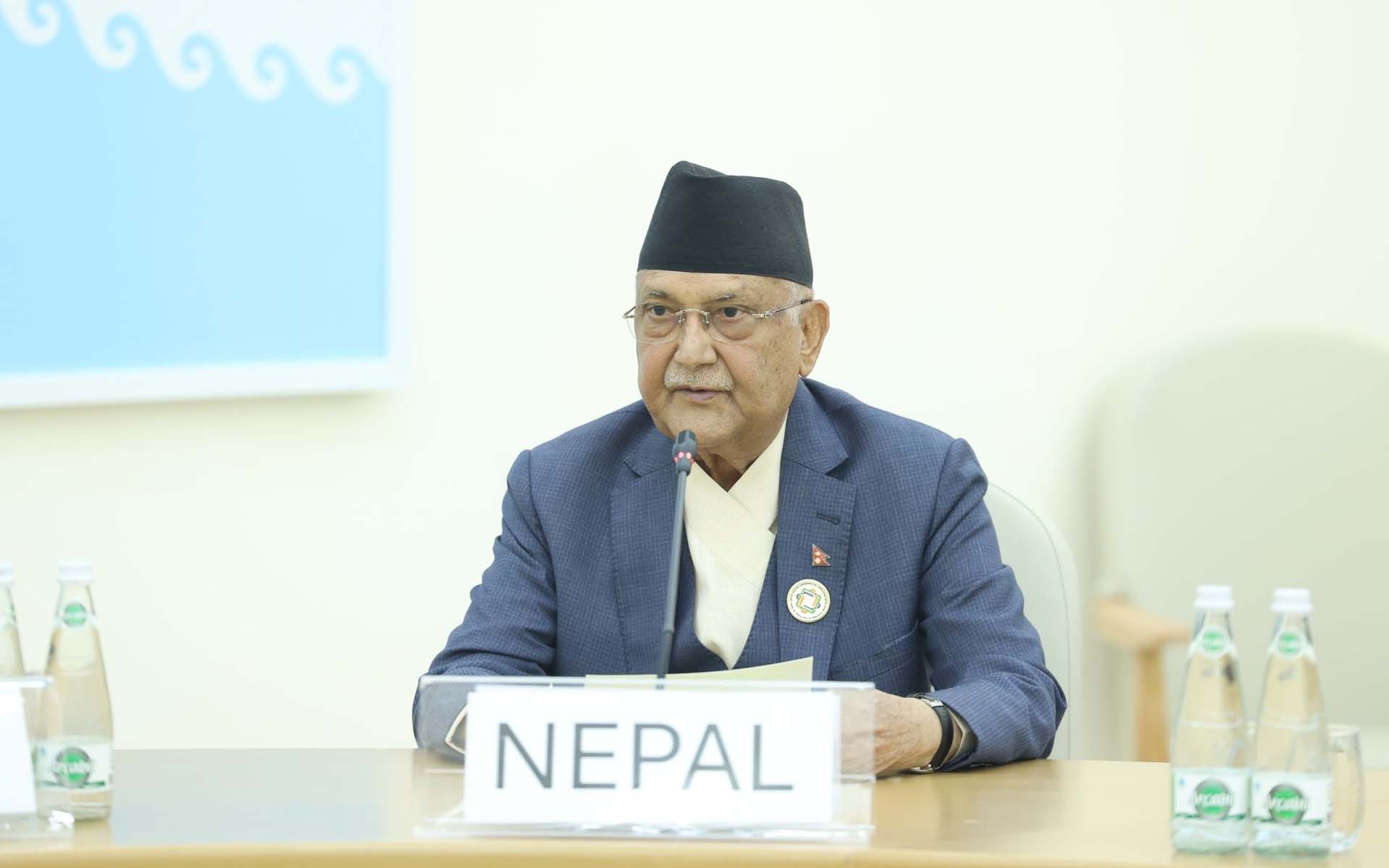
Prime Minister of Nepal, K.P. Sharma Oli, made an impassioned plea for global climate justice at a high-level side event titled “Glacial Melt and Beyond: Unraveling the Climate Challenges Impacting LLDCs” during the Third United Nations Conference on Landlocked Developing Countries (LLDCs) held in Awaza, Turkmenistan.
Addressing the gathering of dignitaries, diplomats, and development leaders, Prime Minister Oli emphasized the severe impacts of climate change on Himalayan nations like Nepal. “As a Himalayan country, glacial melting is one of the major challenges of Nepal,” he stated, recalling how the snow-covered mountains he saw as a child are now turning into black rocks. “As my hair turns grey, the white mountains are turning into black rocks,” he said, capturing the emotional toll of the environmental crisis.
PM Oli underscored Nepal’s negligible carbon emissions and the deep disconnect between its minimal contribution to global warming and the outsized climate impacts it faces. “We have not done any mistake, we are just bearing the consequences of others,” he said, adding that Nepal’s people continue to live in harmony with nature.
He called the Himalayas not only a source of water and livelihood for billions of people but also a symbol of identity, national pride, and survival. “Himalayas are cooling centers of the planet Earth,” he said, warning that their rapid disappearance poses a threat not only to Nepal but to the world.
Referring to recent climate-induced disasters, PM Oli highlighted the July 8 glacial lake outburst flood in Nepal’s Rasuwa district, which caused the deaths of about 20 people and destroyed critical infrastructure, including a bridge connecting Nepal and China. He warned that with over 2,000 glacial lakes in the country—21 of them identified as potentially dangerous—the frequency and severity of such events are likely to increase.
“The cry of the glaciers is not silent. It is loud, and urgent. It is a plea not just for action, but for justice,” the Prime Minister said, urging the global community to respond with urgency and fairness.
Citing scientific projections that estimate the Himalayas could lose up to two-thirds of their glacier volume by the end of this century, PM Oli expressed concern over the future of major river systems—including the Ganges, Brahmaputra, and Indus—that originate in the region and sustain billions across South and Southeast Asia.
He posed a series of pointed questions to the international community, challenging development partners, climate finance institutions, and researchers to collaborate meaningfully with vulnerable countries. He also called for greater South-South and Triangular Cooperation to address the resource and technology gaps faced by landlocked developing countries.
Despite the grim warnings, Prime Minister Oli concluded his statement on a hopeful note. “I have hope. And I am confident that we can save our Himalayas with concrete and concerted actions,” he said. “Nepal stands ready—to act, to partner, and to lead—so that the voices of the Himalayas do not fade beneath melting ice, but rise to inspire global climate justice.”